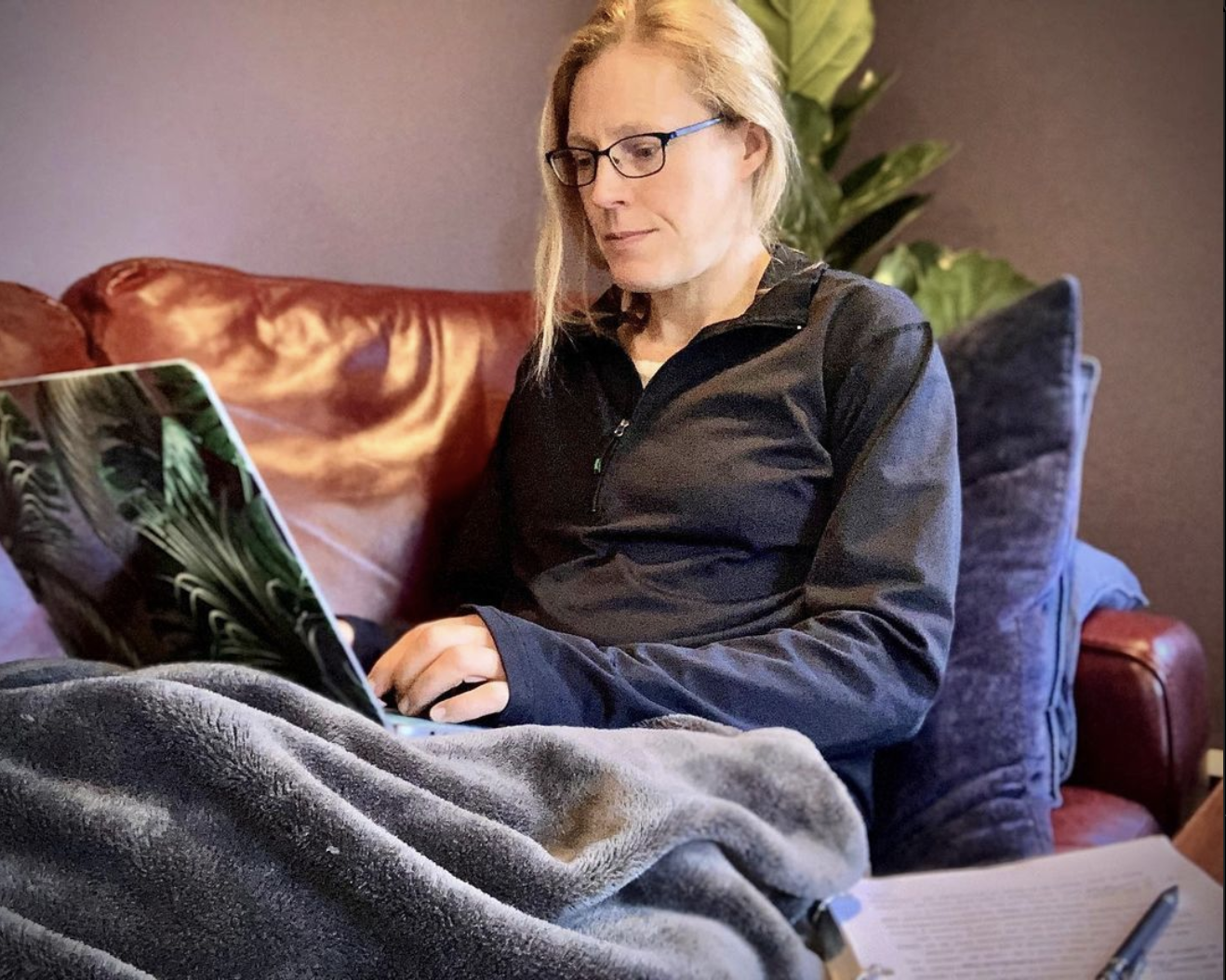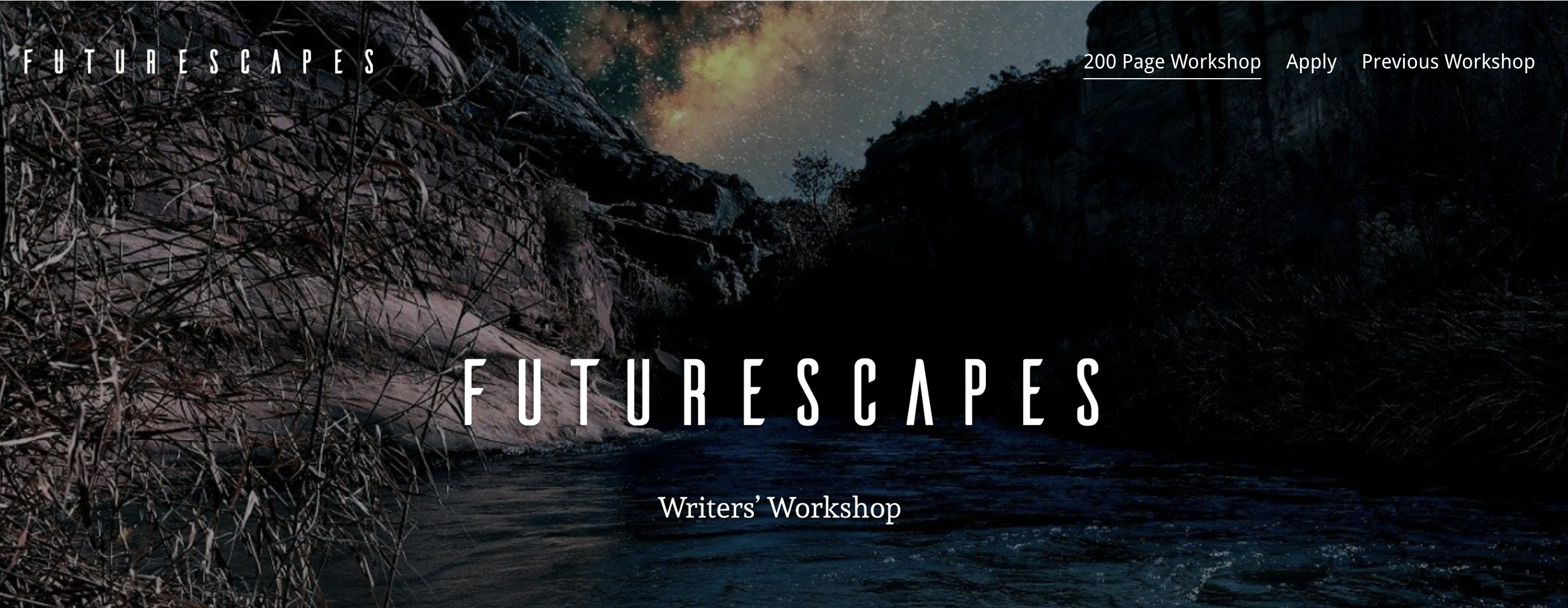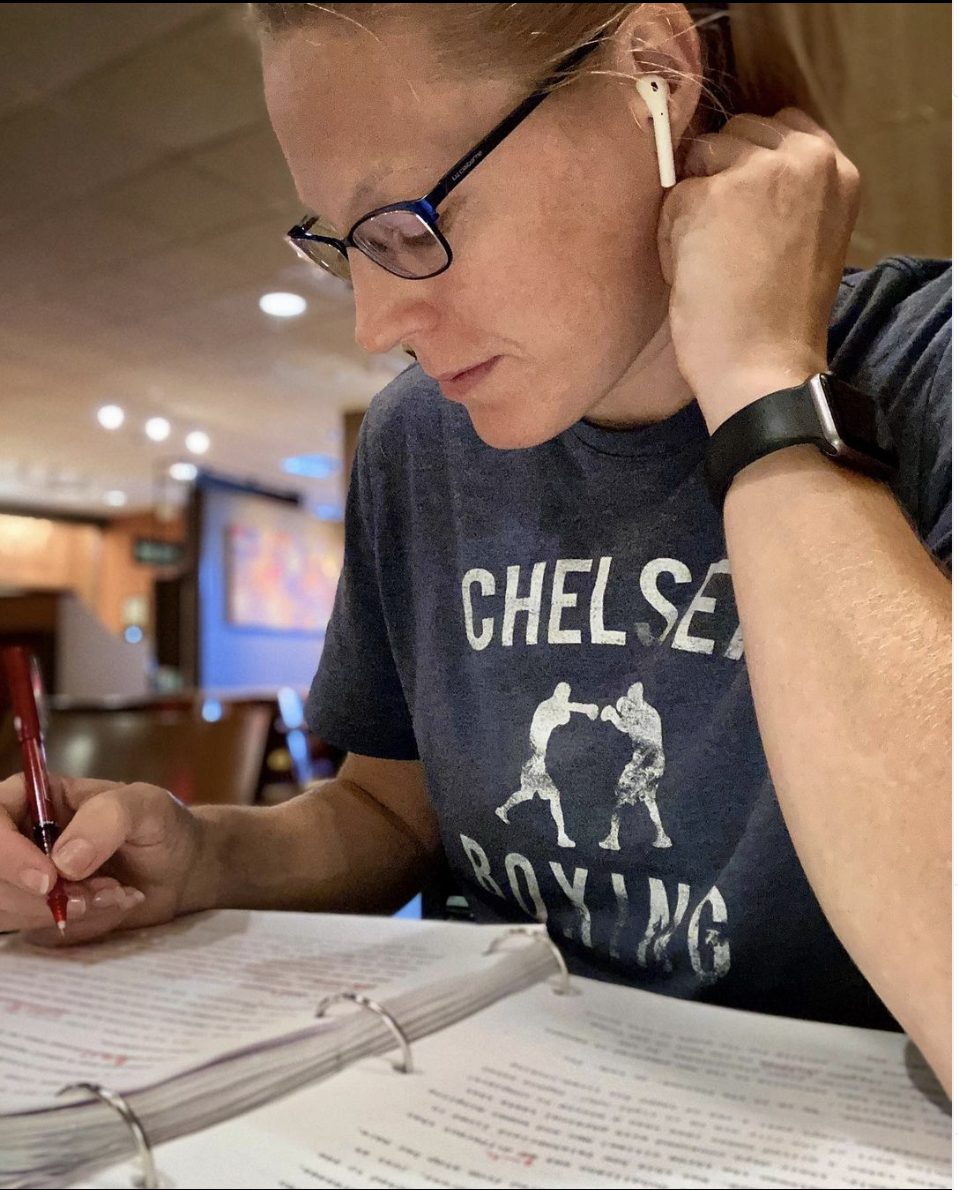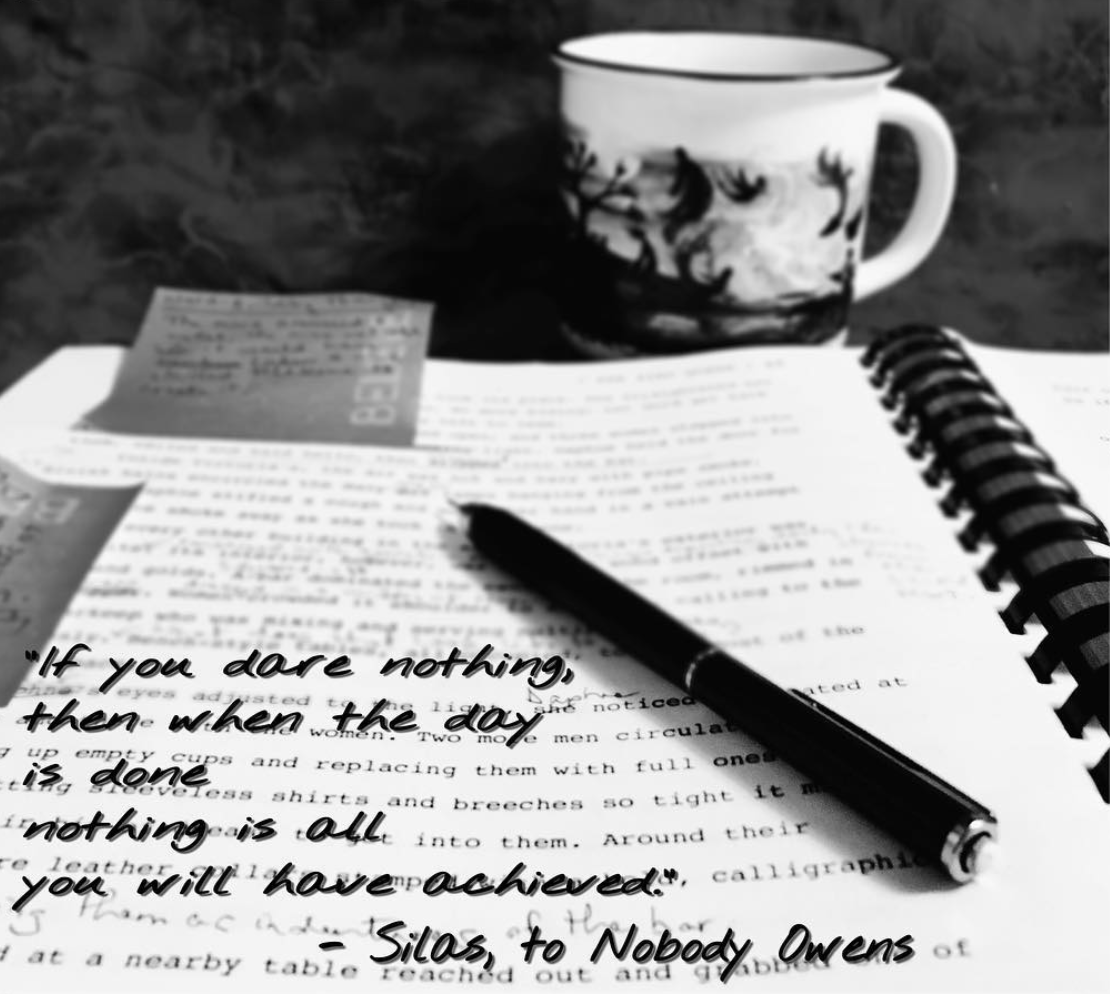Last time I posted, I shared some general life milestone moments culminating in the discovery that I need reading glasses. This time, I have far more exciting news to share.
Life: A Long and Winding Road
I started submitting short stories to science fiction, fantasy, and horror magazines in 2000. Back then, the internet was clunky and only accessible via dial-up modems. Barely recognizable compared to what it is today. Most (all?) fiction magazines only accepted submissions via regular mail. I remember making multiple photocopies of my stories at Staples, buying manilla envelopes and business envelopes in bulk, and regularly hitting up the post office to buy stamps. If you think the submission process is slow now, Odin Allfather, you have no idea.
For about a year, I wrote and submitted a lot of stories. Sadly, I was too full of self-doubt to sending anything to Asimov’s or Analog or the Magazine of Fantasy and Science Fiction. I mean, I loved writing, but I was a nobody, so I spent that year submitting my stuff to non-paying markets. Two pieces found homes in small zines that paid in contributor copies. Boneworld Publishing (no longer extant) gave me my first authorial milestone moment when they accepted a mother-daughter-survivor’s-guilt ghost story for their magazine, Barbaric YAWP. The second venue I landed a piece in was Samsara: The Magazine of Suffering. Have a look at my very first acceptance letter! Handwritten on what looks like a piece of scrap paper. No contract sent or signed or anything. It was a different time back then, for sure.
Then, a whole bunch of general life milestone moments happened. In 2000, I started teaching high school science–biology, chemistry, and physical science. I had no background in teaching at all, just a bachelor’s in science. To say the learning curve was steep would be an understatement. For about two years, my life looked like this: Wake up at 6am. Eat breakfast, go to work and teach until 3:30. Go home and sleep for 3 hours. Wake up and eat dinner. Grade and lesson plan until midnight. Repeat. There was no room for anything else. Creative writing fell by the wayside.
In 2003, I got married and switched schools. I gave birth to my first child in 2006. In 2007, my spouse went back to school. The banks went belly up in 2008. The economy tanked, and I switched schools again. In 2009, I switched schools yet again. In 2010, I had another kid…
I didn’t return to writing and submitting stories until 2016. Even then it was only in sporadic and inconsistent bursts. Between 2016 and 2021, I wrote a total of five short stories and submitted them unsuccessfully to a total of eighteen places. Five stories in five years is underwhelming. I would be embarrassed by that lack of productivity, except I don’t really count 2019 or 2020 (or even 2021). I’m a teacher, remember. The pandemic was a time of fear and confusion and frustration and many moments of despair for me. I’m still not fully recovered from the trauma of it (who is?).
So, a flurry of writing and trying to get my stuff published a little over two decades ago and then a whole lot of not much. Until this past year.
Having a Community to Support and Motivate You Matters

In the summer of 2020, trapped in the isolation of the early days of the pandemic, I joined an online community of writers and authors called Codex Writers. The effect of doing so was immediate and motivating. I started writing more consistently than I had been, and I started submitting what I was writing with more intentionality. It was great, but it was also kind of terrible.
The Codex Writer’s community is largely made up of published speculative fiction authors, and I’d kind of snuck in because I’d gotten a masters degree in creative writing in 2018 (a fact I felt barely qualified me for membership). Despite trying my hardest to write something good enough to get published in a pro- or even semi-pro market, the rejection letters piled up. Very occasionally, I got a personalized message from an editor. Usually not. That’s just how it goes, but I’d be lying if I said it hadn’t been slowly wearing me down. Failing because you aren’t trying feels a lot different from failing when you’re trying your hardest, you know?
In interacting with other members of the online Codex group, though, I felt supported and encouraged to to keep writing and keep submitting my stuff.
Milestone Moment: This is the Year I Get A Story Published (and Get Paid for It!)
One of the stories I wrote in 2020 was a slipstream piece of science fiction that I loved, but it was tricky and difficult and experimental. I wanted it to find a home so badly. It had a couple of near misses, but I just couldn’t seem to place it.
At the very end of December 2022, B. Morris Allen over at Metaphorosis magazine sent me a revision invitation on the story. The offer wasn’t an acceptance, but it was a huge step in the right direction. It felt pretty great to know that someone saw potential in the piece and wanted to work with me to make it great. Let’s call that R&R a “mini” milestone moment.
I spent a lot of this past winter juggling work shenanigans and family demands, but every so often I was able to draft a revision and send it Morris’s way. Each time, he responded with very encouraging feedback, suggestions, and a follow-up revision request.
Meanwhile, the Codex Writers Group announced a mid-winter, six-week-long flash fiction challenge they called: Weekend Warrior. Here’s how it worked. Every Friday evening for six weeks, the contest runners posted five writing prompts. Participants (who registered and got sorted into groups) then picked a prompt and wrote a not-longer-than 750 word story that had to be submitted by Monday morning. Your story got read, rated, and given constructive feedback by the other 15 to 20 people in your group. It was amazing. Amaaaaaazing! I wrote six stories and got encouraging and helpful feedback on them from successful and talented authors, some of whom I secretly harbored (and still harbor) hero-worship-style crushes on.
Truthfully, I had no intention of doing anything with any of the stories I wrote for that challenge. I’d never written flash fiction before. I didn’t know what I was doing, and I certainly didn’t expect to produce anything good. I took part in the challenge to keep myself writing, try something new, and make some new friends.
The thing about communities, online or in real life: They nurture and support you and build you up. After the competition, I kept reading posts by other folks who were submitting their “WW” stories to magazines. Apparently, it was a common thing to do, and some very kind and incredibly talented authors (Carol Scheina and Phoenix Alexander) told me I should, too. Okay, I thought, why not? Out I sent them, with no real expectation of anything coming of it.
 In April, however, I opened my email inbox and gasped like they do in the movies. A flash story I’d written had been accepted for publication. That little voice in my head that had been saying, “You really should stop this nonsense,” went “Huh, maybe you aren’t a complete hack.” You know what that means? Not counting the two stories I sold for contributor copies, 2023 is the year that I get a story published and get paid for it, because it was MetaStellar who took the story! They’re one of the top paying pro-level magazines out there, and the stuff they print is damned good. You should 100% check them out.
In April, however, I opened my email inbox and gasped like they do in the movies. A flash story I’d written had been accepted for publication. That little voice in my head that had been saying, “You really should stop this nonsense,” went “Huh, maybe you aren’t a complete hack.” You know what that means? Not counting the two stories I sold for contributor copies, 2023 is the year that I get a story published and get paid for it, because it was MetaStellar who took the story! They’re one of the top paying pro-level magazines out there, and the stuff they print is damned good. You should 100% check them out.
Milestone Moment #2: This is the Year I Get TWO Stories Published!!
 Less than a month after getting the great news from Metastellar, B. Morris Allen emailed me with an official offer of acceptance on that strange slipstream SF story he’d been editing with me since December! That makes not one but two story acceptances in 2023, both in paying markets. Metaphorosis isn’t a top-paying magazine, but they publish equally fine stories, and I just can’t believe mine will be one of them!
Less than a month after getting the great news from Metastellar, B. Morris Allen emailed me with an official offer of acceptance on that strange slipstream SF story he’d been editing with me since December! That makes not one but two story acceptances in 2023, both in paying markets. Metaphorosis isn’t a top-paying magazine, but they publish equally fine stories, and I just can’t believe mine will be one of them!
I’m thrilled. I’m also quietly terrified that I won’t see anything else published for another 20+ years, except I know that won’t happen. I’ve still got several other stories out on submission, and now I have actual evidence that I can in fact write publishable stories, so I’m feeling highly motivated to keep at it. Consistency really is the key, it seems. Maybe I’ll give the Ray Bradbury method a try and attempt a story a week for 52 consecutive weeks.
Summer vacation is right around the corner, too. The timing of all of this couldn’t be better. This spring is the first time since we all went into lockdown and life went sideways that I’ve felt mentally healthy again. Not 100%. I take life one day at a time now, but this is the first time in a very long time that the good days outnumber the bad days. I’ll be going into the summer months feeling fresh and excited and ready to go.
2023 has been quite the year for milestone moments so far. Let’s see if I can’t create a few more great ones in the coming months.
That’s all for now. Thanks for stopping by, and as always, happy writing!
 Because I’m a teacher, summer has always been my chance to get some solid writing done. Every year, I set myself a bunch of writing goals. Last year was a wash, sadly, because I spent the summer recovering from a somewhat substantial surgery and lacked the energy to do much of anything. This summer, though. This summer I am healthy and ready to go. Also, I just found out that I’ve been accepted into the Science Fiction & Fantasy Writers Associations Mentoring Initiative Program for the June 10th–September 10th session.
Because I’m a teacher, summer has always been my chance to get some solid writing done. Every year, I set myself a bunch of writing goals. Last year was a wash, sadly, because I spent the summer recovering from a somewhat substantial surgery and lacked the energy to do much of anything. This summer, though. This summer I am healthy and ready to go. Also, I just found out that I’ve been accepted into the Science Fiction & Fantasy Writers Associations Mentoring Initiative Program for the June 10th–September 10th session. Okay, I might be biting off more than I can chew here. Of course I am. I’m a Try Hard, YOLO, overachieving Extra by nature. Do all the things! All of them!! In that spirit, I’ve got a half-finished draft of a middle grade adventure story that I really want to finish writing, and I really want it to be good, not sucky. Rather than discovery write my way into 70,000 words of bloated rambling nothingness (which has been my failed strategy with my last two novels), I need a plan. I need to actually map out the story before I write it. Unfortunately, I suck at plot structure. Fortunately, I’ll have a SFWA mentor who will be able to help me out with tips and tricks and regular check-ins to keep me honest.
Okay, I might be biting off more than I can chew here. Of course I am. I’m a Try Hard, YOLO, overachieving Extra by nature. Do all the things! All of them!! In that spirit, I’ve got a half-finished draft of a middle grade adventure story that I really want to finish writing, and I really want it to be good, not sucky. Rather than discovery write my way into 70,000 words of bloated rambling nothingness (which has been my failed strategy with my last two novels), I need a plan. I need to actually map out the story before I write it. Unfortunately, I suck at plot structure. Fortunately, I’ll have a SFWA mentor who will be able to help me out with tips and tricks and regular check-ins to keep me honest. 
 Funny thing, though. A couple of weeks went by and I found myself mentally minimizing my publishing success, doubting it. Once is a fluke, I thought. Once doesn’t mean anything. But then it happened again. Another acceptance showed up in my inbox in early May, this time from
Funny thing, though. A couple of weeks went by and I found myself mentally minimizing my publishing success, doubting it. Once is a fluke, I thought. Once doesn’t mean anything. But then it happened again. Another acceptance showed up in my inbox in early May, this time from  But this past Tuesday I got a
But this past Tuesday I got a 





 Less than a month after getting the great news from Metastellar, B. Morris Allen emailed me with an official offer of acceptance on that strange slipstream SF story he’d been editing with me since December! That makes not one but
Less than a month after getting the great news from Metastellar, B. Morris Allen emailed me with an official offer of acceptance on that strange slipstream SF story he’d been editing with me since December! That makes not one but 
 It was it’s own milestone moment. The school nurse was doing the hearing and vision tests, calling kids out of their classes in small batches. You know, I’m sure. You probably remember it yourself.
It was it’s own milestone moment. The school nurse was doing the hearing and vision tests, calling kids out of their classes in small batches. You know, I’m sure. You probably remember it yourself. 

 Which is good. I need them. I’ve been spending a lot of time at my computer this year, writing. And, if this year is any indication, I’ll be spending a lot more time at my computer moving forward, too. Exciting things are finally starting to happen. I’ll tell you more about them in my next post.
Which is good. I need them. I’ve been spending a lot of time at my computer this year, writing. And, if this year is any indication, I’ll be spending a lot more time at my computer moving forward, too. Exciting things are finally starting to happen. I’ll tell you more about them in my next post.

 There was a Discord group. I’ll give them that. But it was informal (not actually run by the organization), and it was not widely (or uniformly) publicized. Some but not all participants and faculty mentors used it, and it was mostly used to troubleshoot technical difficulties.
There was a Discord group. I’ll give them that. But it was informal (not actually run by the organization), and it was not widely (or uniformly) publicized. Some but not all participants and faculty mentors used it, and it was mostly used to troubleshoot technical difficulties. 







 It’s generally used disparagingly, but I embrace that identifier. You better believe I’m a Hardo, folks. YOLO. Go big or go home. Do, or do not. There is no try.
It’s generally used disparagingly, but I embrace that identifier. You better believe I’m a Hardo, folks. YOLO. Go big or go home. Do, or do not. There is no try. 
 You can read about some of my earlier adventures drafting this book
You can read about some of my earlier adventures drafting this book 

 So, what shall I work on next? There’s a corkboard on my office wall with hand written pages pinned up in various shades of fountain pen ink, and they all bear the same title: “Story Idea.” Guess it’s time to peruse my options.
So, what shall I work on next? There’s a corkboard on my office wall with hand written pages pinned up in various shades of fountain pen ink, and they all bear the same title: “Story Idea.” Guess it’s time to peruse my options. 
 “Admiring the Scene-ry” was a fantastic panel to listen in on as I ate dinner in my living room.
“Admiring the Scene-ry” was a fantastic panel to listen in on as I ate dinner in my living room. 
 I capped off my Friday evening listening to
I capped off my Friday evening listening to 

 We are, as the title of Jonathan Gottschall’s book indicates,
We are, as the title of Jonathan Gottschall’s book indicates, 

 We need climate change stories that will get people thinking–really thinking–about the messy moral and ethical issues tangled up in large-scale ecological disasters. I’m thinking of stories like Cormac McCarthy’s
We need climate change stories that will get people thinking–really thinking–about the messy moral and ethical issues tangled up in large-scale ecological disasters. I’m thinking of stories like Cormac McCarthy’s  Neal Shusterman’s YA novel
Neal Shusterman’s YA novel  If you’re a writer and you’re feeling anxious in this time of climate change, pick up your pen and do what you do best. Write a story daring enough and honest enough to inspire the masses, influence thought and maybe change the future. Be the next Mary Shelley, the next H. G. Wells, the next Jules Vern. That was my message to the audience at the panel discussion two weeks back, and that’s my message to every writer who reads this post.
If you’re a writer and you’re feeling anxious in this time of climate change, pick up your pen and do what you do best. Write a story daring enough and honest enough to inspire the masses, influence thought and maybe change the future. Be the next Mary Shelley, the next H. G. Wells, the next Jules Vern. That was my message to the audience at the panel discussion two weeks back, and that’s my message to every writer who reads this post.